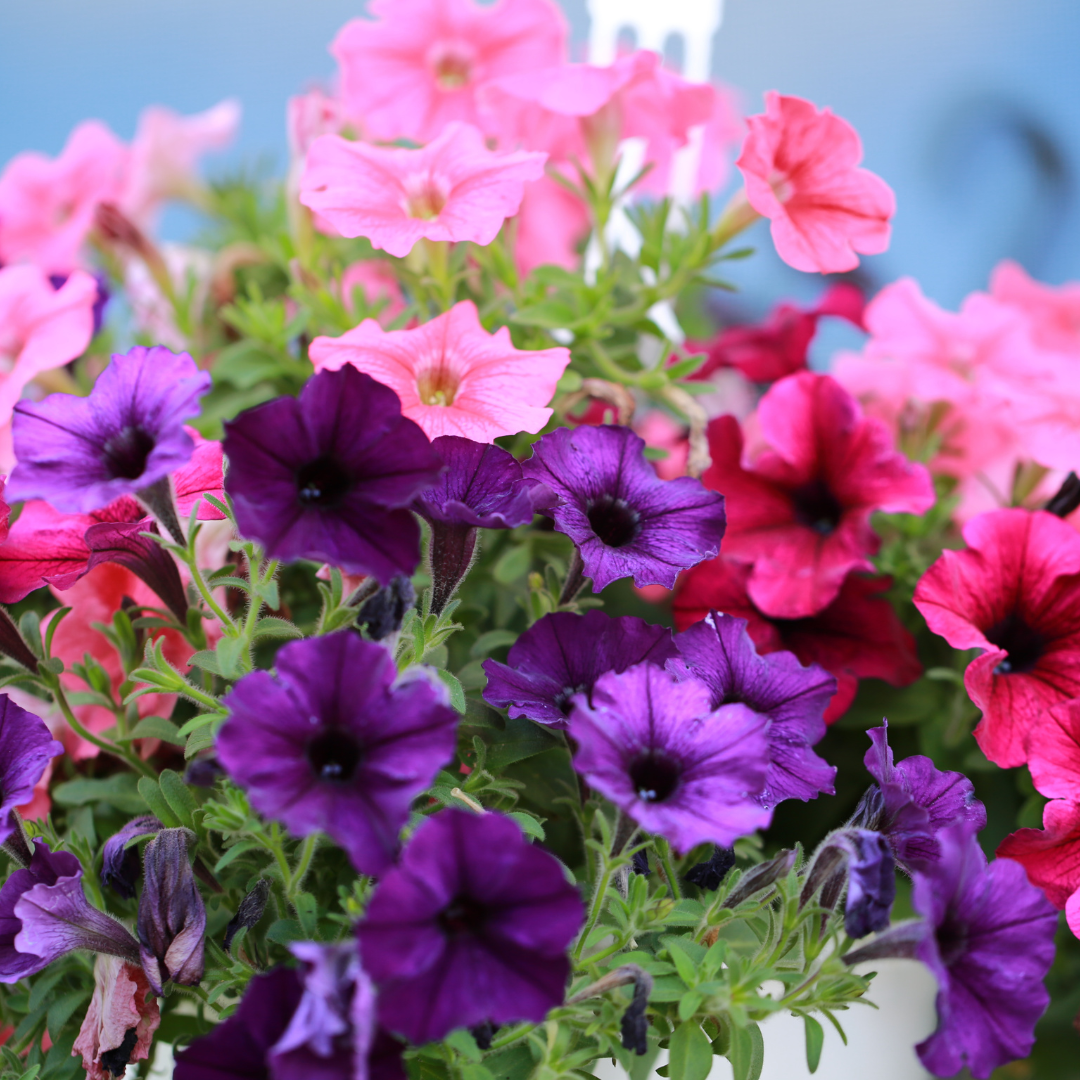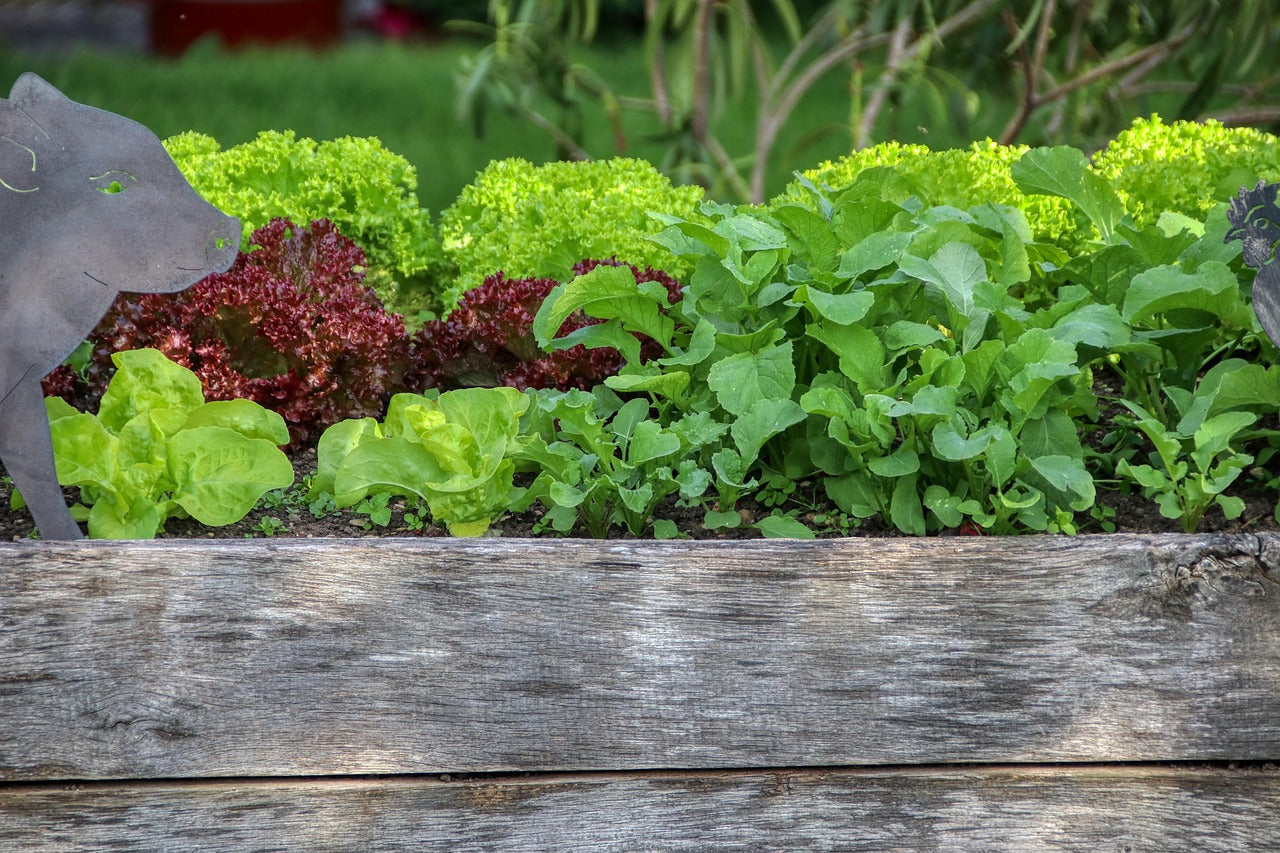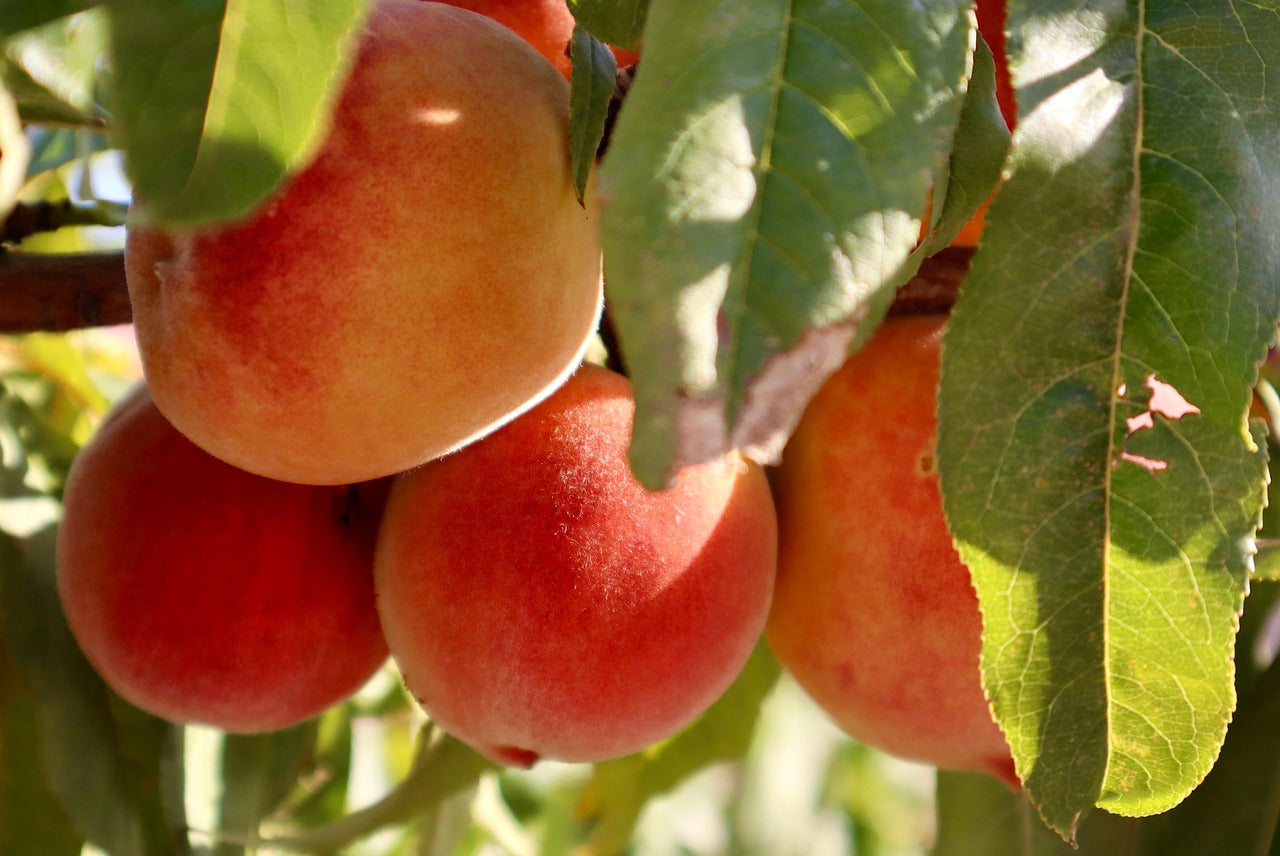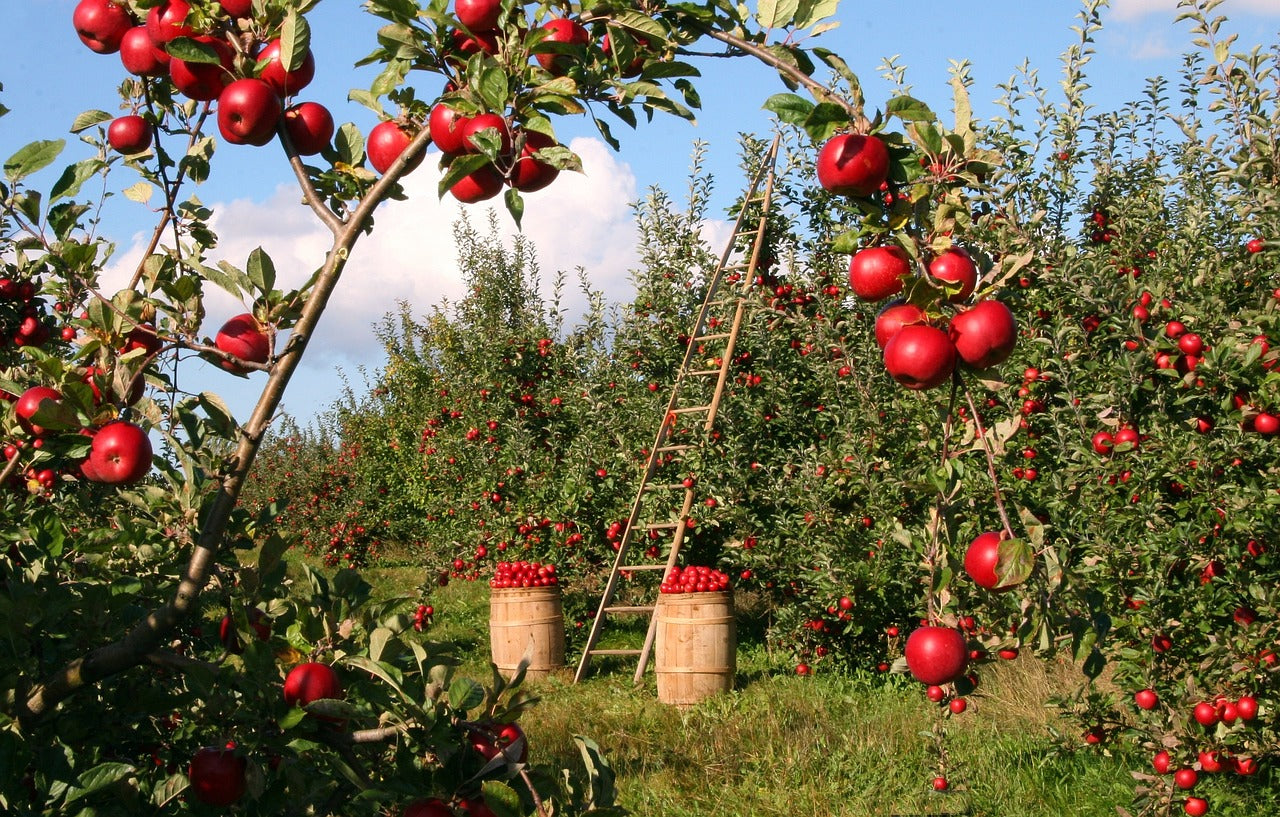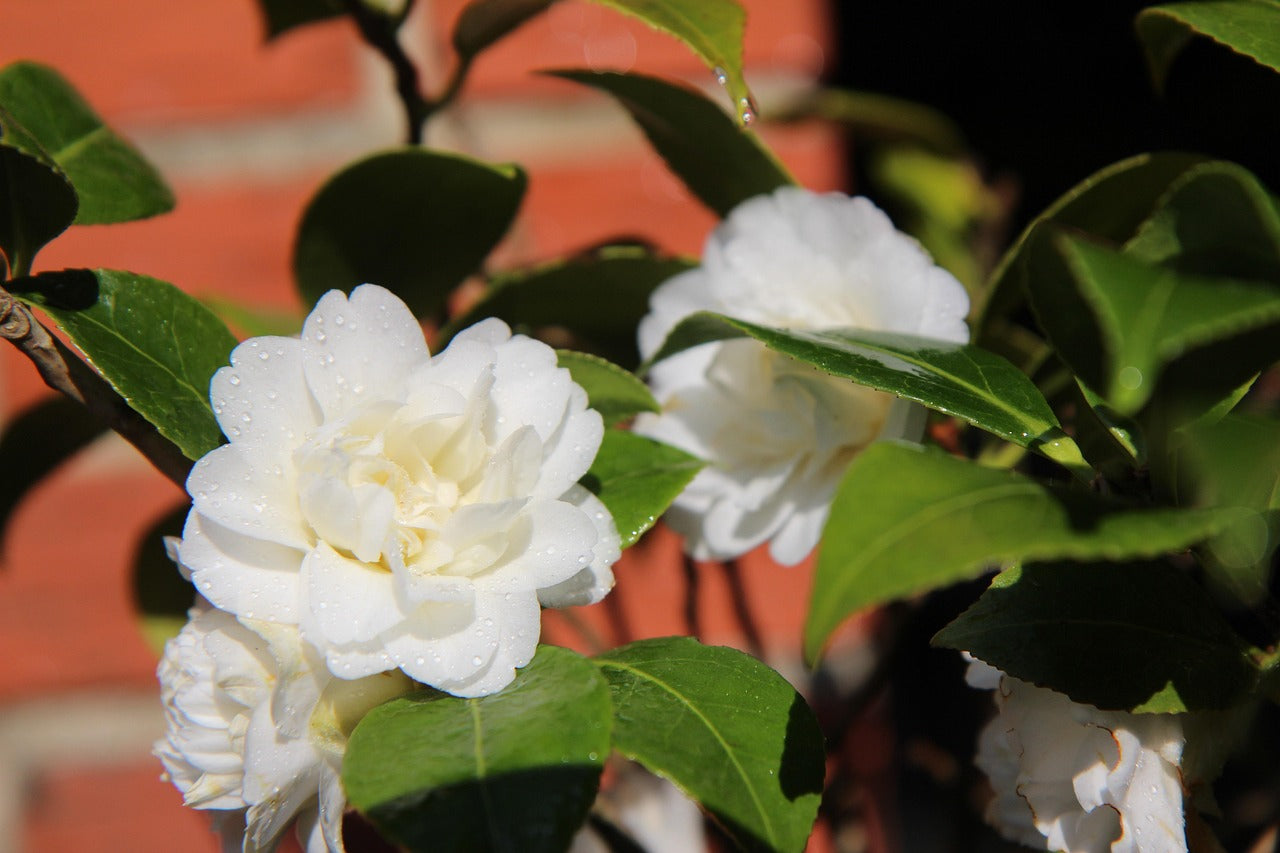Petunias are an all-time favourite for those in want of a pop of instant colour in their garden! With a seemingly endless choice of colours, sizes and patterns, petunias are a popular addition to many garden beds, pots and hanging baskets.
Planting
Plant petunias in a spot with full sun to partial shade (so that they receive at least 6 hours of sunlight per day). Plant in rich fertile, well-draining soil. To increase the fertileness of the soil, add organic material such as Tui sheep pellets and Palmers Garden X Compost to the soil before planting.
Water petunias before and after planting. Dig a hole twice the size of the plant root ball. Add Tui Novatec Premium into the hole and plant petunia. Fill in the remainder of the hole with soil and gently firm down around the base of the plant.
Petunia Plant Care
Watering
Whilst petunias can survive dry periods, this does greatly affect their ability to produce as many blooms. Therefore, ensure that petunias are watered during the dry summer months, particularly if planted in hanging baskets or pots. Soil should be moist but not waterlogged.

Fertilising
Stronger plants that are well-watered and fed, are more resistant to pests and diseases. Add Tui Organic Seaweed Plant Tonic regularly to give plants a boost.
Pests and Diseases
Protect seedlings from snails and slugs by adding Yates Blitzem bait around the base of the plant. If aphids appear, hose with a pyrethrum spray such as Yates Nature's Way Natural Insect Spray.
Top tip: Regularly remove spent blooms to encourage new blooms.


